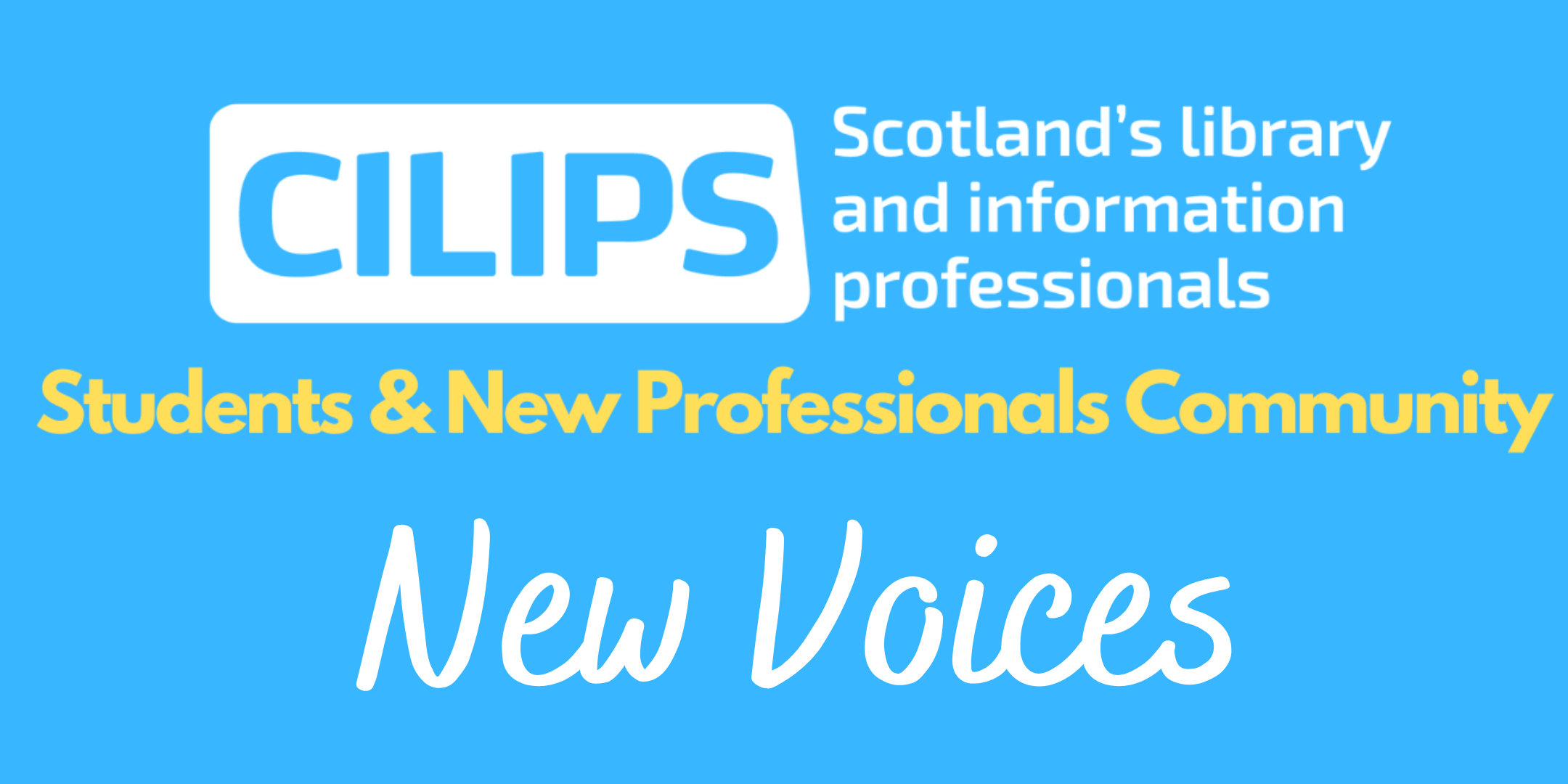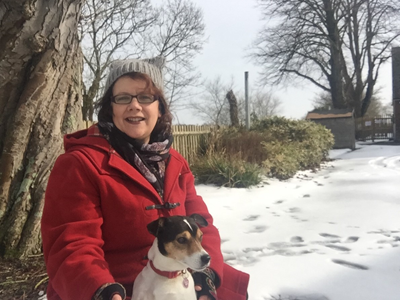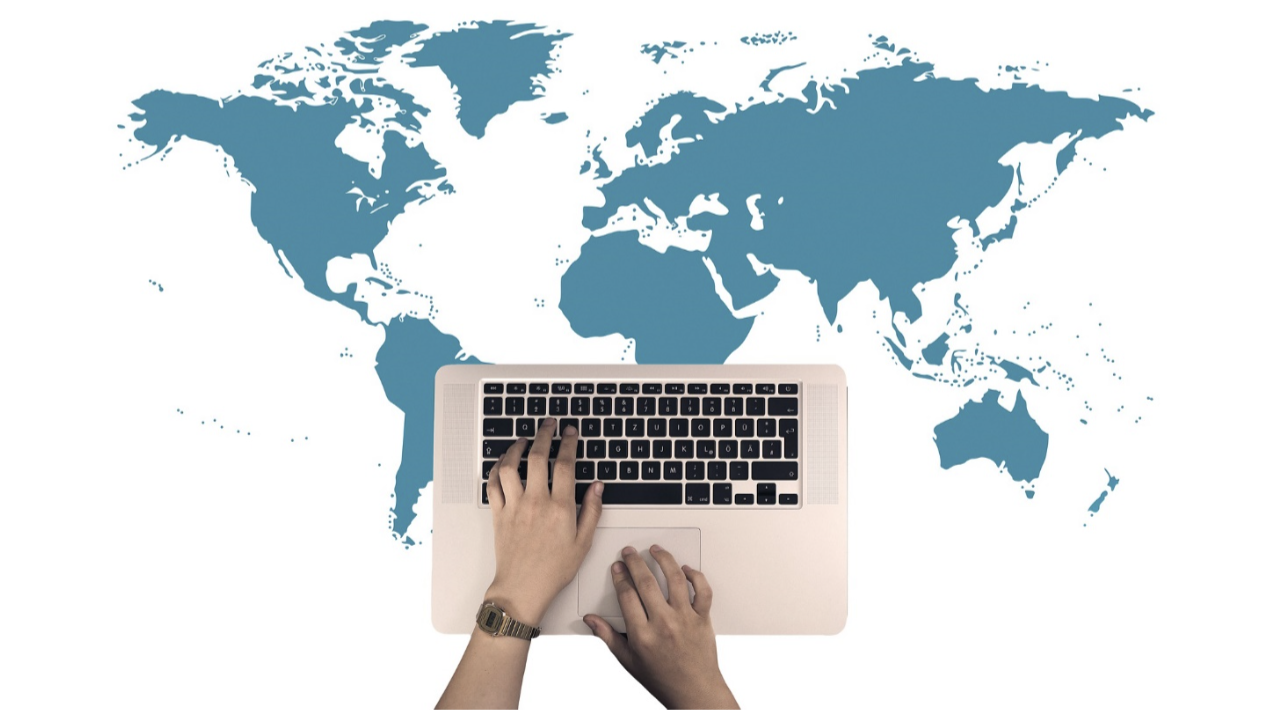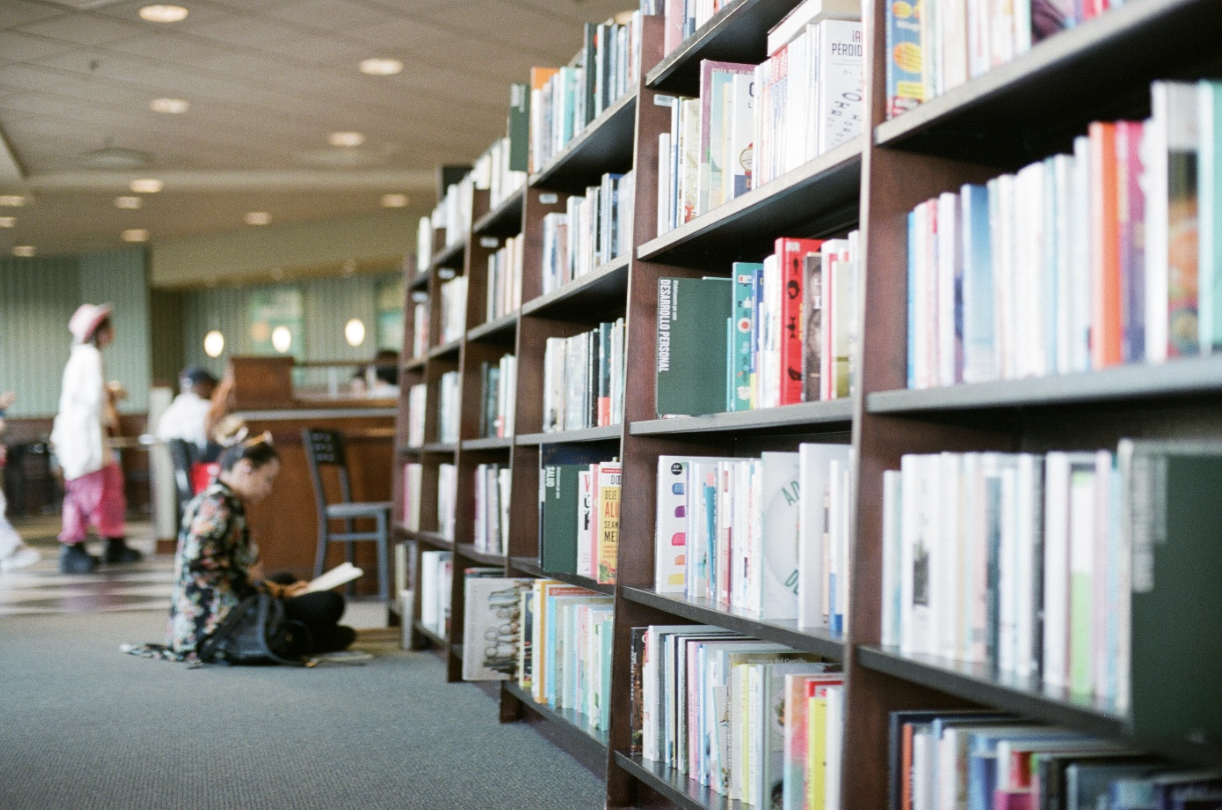New Voices RGU Student Series 2023 – Ana Williams
Category: Blog, New Voices, New Voices, News, RGU Student Series

In this 2023 Student Series for the New Voices blog, the CILIPS Students & New Professionals Community will be sharing the views of Robert Gordon University students from the MSc in Information and Library Studies. With special thanks to Dr Konstantina Martzoukou, Teaching Excellence Fellow and Associate Professor, for organising these fantastic contributions. This series will be shared by CILIPS Graduate Trainee Leah Higgins.

Ana Williams (@verycuriousana) is from the UK and has an MA in International Relations. Ana is currently studying for her MSc in Information and Librarystudies at RGU and works within a healthcare library. Her particular interests include the soft power of mis and dis-information, and the vital need for citizenship skills of research and critical analysis of information.
Information Literacy: How Public Libraries can help Refugees Thrive in their New Environments
Why Information Literacy?
Information Literacy (IL) is the capacity to “think critically and make balanced judgements about any information” (CILIP 2018), which then empowers citizens to have informed views and fully participate within society. At its core are concepts of equity and representation, not only empowering “people in all walks of life …. to achieve their personal, social, occupational and educational goal” (UNESCO 2022) but also providing the essential skills for an increasingly digital, information-rich society.
In today’s world of online citizenship, social inclusion and egalitarian participation require IL skills (which include digital skills and media skills) for individuals “to locate, evaluate, and use effectively the needed information” (American Library Association 1989) to navigate everyday life. This is of particular significance for refugees, people who have “been forced to flee ..[their].. country because of persecution, war or violence” (UNHCR 2022). Refugees as information seekers are displaced from their familiar sources of information and support, which circumstantially have become ‘fractured information landscapes’ (Lloyd et al 2013), and subsequently find themselves in new, unfamiliar information landscapes, compounding their displacement.
Image by kalhh from Pixabay.
Where do Public Libraries fit in?
Public libraries can play a vital role in supporting refugees in their new surroundings. Central to this is the role of information professionals “as mediators and navigators” (Lloyd et al 2013 p.121) of this “novel, complex, and multimodal” (Lloyd et al 2013 p.130) landscape. Breaking away from just the traditional teaching of IL through structured classes or programmes, research looking at “IL instruction through individual interactions with patrons” (Matteson and Gersch 2020 p.71) acknowledges how the activity of information seekers is dependent upon “a wide range of factors, both internal and external to that individual” (Ford 2015 p.100). This means that “IL needs from the patron viewpoint” (Matteson and Gersch 2020 p.86) are paramount and require a flexible approach within interactions. Rather than a prescribed approach, libraries need to work closely with the actual needs of refugees, and develop strategies that begin with the information seeker at the centre.
Public libraries may seem an obvious safe space for refugees, offering free Wi-Fi, computer access, community clubs and access to information. But without IL support most of this will remain inaccessible. In particular, many refugees do not think the library is for them, or do not know of its existence (Martzoukou 2019, Potnis and Winbury 2022) so some groundwork has to be put in first.
How can Information Professionals do this?
Current research reveals several ways information professionals can be consciously inclusive;
- Outreach to communities to make the libraries visible and approachable, including looking at volunteers from the refugee community, and collaborative projects to make the library a trusted place (Martzoukou 2019, Vincent 2020).
- Signposting, or working directly with outside agencies, to help with everyday learning needs, typically relating to housing, school admissions, employment, finances, connecting with family members and health. (Martzoukou 2019, Oduntun and Ruthven 2017, Vincent 2020).
- Looking at accessible stock and adaptations, such as relevant books in different languages, dual-language leaflets, keyboards in various scripts and suchlike
- Considering the heritage and information practices already valued by the refugee community (Kainat et al 2022, Le Louvier and Innocenti 2022). This not only helps with adaptation and understanding, and how to plan IL learning, but can become a way of celebrating the new information journey and building meaningful connections between the past and the present.
- Professional development and reflection of library staff, so that rather than becoming a prescriptive action imposed on others, IL is an embedded practice that filters throughout every interaction. Training for cultural competency (Cooke 2017) is also relevant for a workforce whose demograph does not typically reflect the refugee community (Grossman et al 2022).
Thank you to Ana for this insight into how public libraries can help refugees thrive in their new environments, taking into consideration how we can maximise the community and accessible elements already present in libraries.
Stay tuned for more in the 2023 New Voices RGU Student Series coming soon and be sure to check out the rest of CILIPS SNPC’s New Voices blog.
Bibliography
AMERICAN LIBRARY ASSOCIATION (ALA), 1989. Presidential Committee on Information
Literacy: Final Report. Washington, D.C.: ALA.
CILIP, 2018. CILIP Definition of Information Literacy. [online]. London: CILIP. Available from:
https://infolit.org.uk/ILdefinitionCILIP2018.pdf [Accessed 23 October 2022].
FORD, N., 2015. Introduction to Information Behaviour. London: Facet Publishing.
GROSSMAN, S., AGOSTO D.E., KLASSAS A.C., WINSTON M., EPSTEIN N.E., CANNUSCIO C.C.,
2022. How Public Libraries Help Immigrants Adjust to Life in a New Country: A Review of the
Literature. Health Promotion Practice, 23(5), pp. 804-816
KAINAT, K., ESKOLA, E. and WIDÉN, G., 2022. Sociocultural Barriers to Information and
Integration of Women Refugees. Journal of Documentation, 78(5), pp. 1131-1148.
KOSCIEJEW, M., 2019. Information’s Importance for Refugees: Information Technologies,
Public Libraries, and the Current Refugee Crisis. Library Quarterly: Information, Community,
Policy, 89(2), pp. 79-98.
LE LOUVIER, K. and INNOCENTI, P., 2022. Heritage as an Affective and Meaningful
Information Literacy Practice: An Interdisciplinary Approach to the Integration of Asylum
Seekers and Refugees. Journal of the Association for Information Science and
Technology, 73(5), pp. 687-701.
LLOYD, A., KENNAN, M.A., THOMPSON, K.M., QAYYUM, A., 2013. Connecting with New
Information Landscapes: Information Literacy Practices of Refugees. Journal of
Documentation, 69(1), pp. 121-144.
MARTZOUKOU, K., 2019. Scottish Public Libraries Welcome Syrian New Scots: a Transition
from Being a Refugee to Becoming an Active Part of the Community. In: S. GOLDSTEIN,
ed. Informed Societies: Why Information Literacy matters for Citizenship, Participation and
Democracy. London: Facet. pp. 181-206.
MATTESON, M.L. & GERSCH, B, 2020. Information Literacy Instruction in Public Libraries.
Journal of Information Literacy, 14(2), pp. 71-95.
ODUNTAN, O. and RUTHVEN, I., 2017. Investigating the Information Gaps in Refugee
Integration. Proceedings of the Association for Information Science and Technology, 54(1),
pp. 308-317.
POTNIS, D.D. and WINBERRY, J., 2022. Seven Information Practices for Alleviating
Information Vulnerability. Journal of documentation, 78(4), pp. 835-852.
UNESCO, 2022. Information Literacy. [online]. Paris, France: UNESCO. Available from:
https://www.unesco.org/en/ifap/information-literacy [Accessed 23 oct 2022].
UNHCR, 2022. What is a Refugee? [online]. Geneva, Switzerland: UNHCR. Available from:
https://www.unrefugees.org/refugee-facts/what-is-a-refugee/ [Accessed 23 October 2022].
VINCENT, J., 2020. Libraries of Sanctuary Resource Pack. City of Sanctuary. Available at:
https://www.librariesconnected.org.uk/sites/default/files/COS-Library-resource-pack.pdf
[Accessed 19.11.22]



